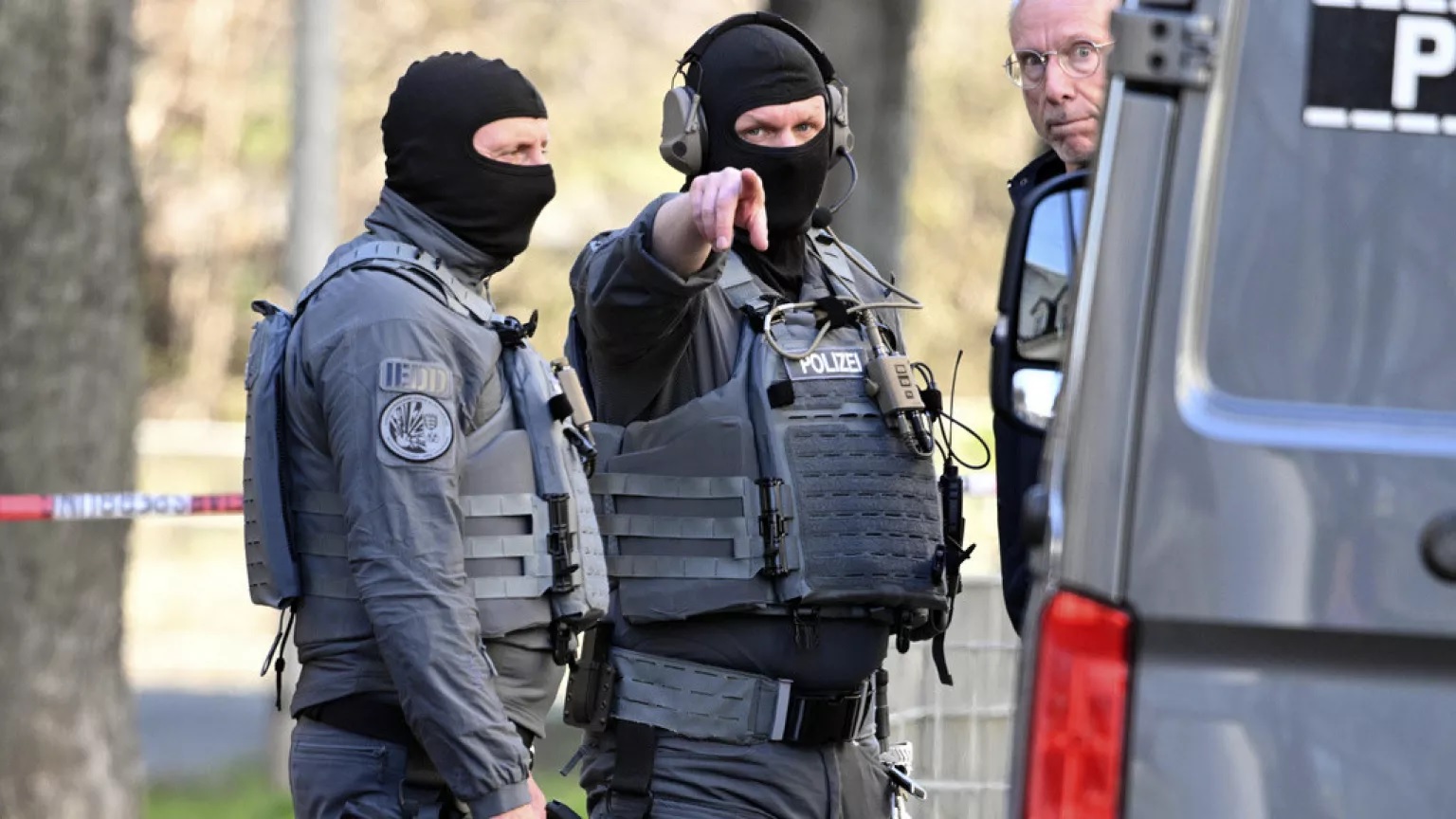News
Germany foils Russian parcel bomb plot, arrests three Ukranians

Germany has foiled a parcel bomb plot, after its officials on Wednesday, May 14, 2025, arrested three Ukrainians, suspected to be connected to the plot.
According to the German federal prosecutor’s office, they alleged that the three men had acted on behalf of the Russian state.
The suspects were identified as Vladyslav T, Daniil B, and Yevhen B.
By German privacy regulations, they were taken into custody recently, Vladyslav T in Cologne, Daniil B in Konstanz, and Yevhen B in Thurgau, Switzerland.
Yevhen B has since been transferred to German custody.
The men are suspected of engaging in covert operations intended for sabotage.
By March 2025 at the latest, they had reportedly entered into an agreement with one or more individuals believed to be associated with Russian state entities.
The plan, as described by the prosecutor’s office, involved committing “aggravated arson” and triggering detonations using explosives.
The intent was to disrupt cargo transport within Germany by shipping packages rigged with incendiary or explosive devices to recipients in Ukraine.
These packages were designed to detonate en route, causing damage during transport.
The investigation revealed that in late March, Vladyslav T dispatched two test parcels from Cologne that contained GPS trackers.
These were intended to help determine viable delivery routes and logistics.
Prosecutors believe this action was carried out under the direction of Yevhen B, with the contents of the packages having been provided through Daniil B.
This case follows a troubling pattern of similar attacks that rattled European security services in July of the previous year.
Three parcels containing explosive devices were sent from Lithuania and detonated in three different locations: Birmingham in the UK, Leipzig in Germany, and near Warsaw in Poland.
These incidents raised serious concerns among Western intelligence agencies, as they indicated a potentially coordinated campaign of sabotage.
German officials noted at the time that the explosive devices could have caused catastrophic consequences if they had detonated aboard an aircraft.
In response, logistics company DHL implemented new safety protocols, especially after one of its warehouses in Leipzig was damaged by fire.
Suspicion quickly turned to Russian intelligence services, as these events occurred amid a broader backdrop of hostile activities attributed to Moscow.
These reportedly included cyberattacks, incidents of arson, theft of sensitive data, and interference with critical undersea infrastructure.
Security analysts observed that all the couriers involved in the bomb incidents seemed to be part of the same coordinated network.
This is because they came with packages containing similar disguises, such as sex toys and massage pillows.
Further investigation revealed that the bombs were constructed using inexpensive Chinese electronics originally meant for tracking lost items.
These devices were modified with timers to ignite the explosives.
The explosive power of the parcels was enhanced using tubes designed to look like cosmetic products.
Inside, investigators found a flammable gel made with compounds like nitromethane, which significantly increased the potential for destruction.
Given the gravity of the case and its implications for public safety and national security, the investigation has been spearheaded by Germany’s federal criminal police.
Such involvement typically signifies a case of particular importance, especially in matters involving suspected terrorism or foreign state interference.
The arrests highlight an ongoing threat of hybrid warfare tactics targeting Western nations.
The blending of espionage, sabotage, and conventional criminal activity, potentially directed or supported by state actors, represents a complex challenge for European security agencies.
The collaboration between German and Swiss authorities in apprehending the suspects supposedly underscores the international nature of the threat and the importance of cross-border cooperation in addressing it.
As investigations continue, authorities remain focused on uncovering the full extent of the network behind the planned attacks.
They also plan to uncover if the attacks have links to Russian state institutions, and any further threats that may emerge from similar tactics.
For Diaspora Digital Media Updates click on Whatsapp, or Telegram. For eyewitness accounts/ reports/ articles, write to: citizenreports@diasporadigitalmedia.com. Follow us on X (Fomerly Twitter) or Facebook














